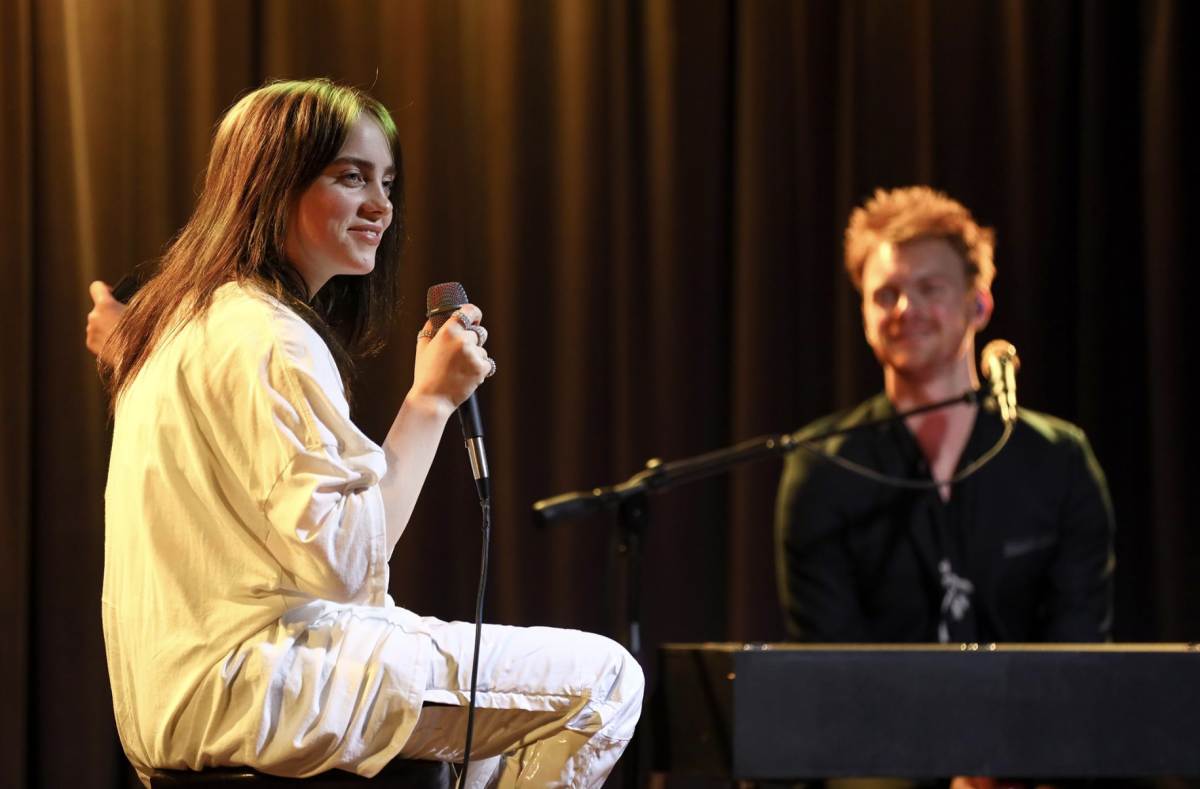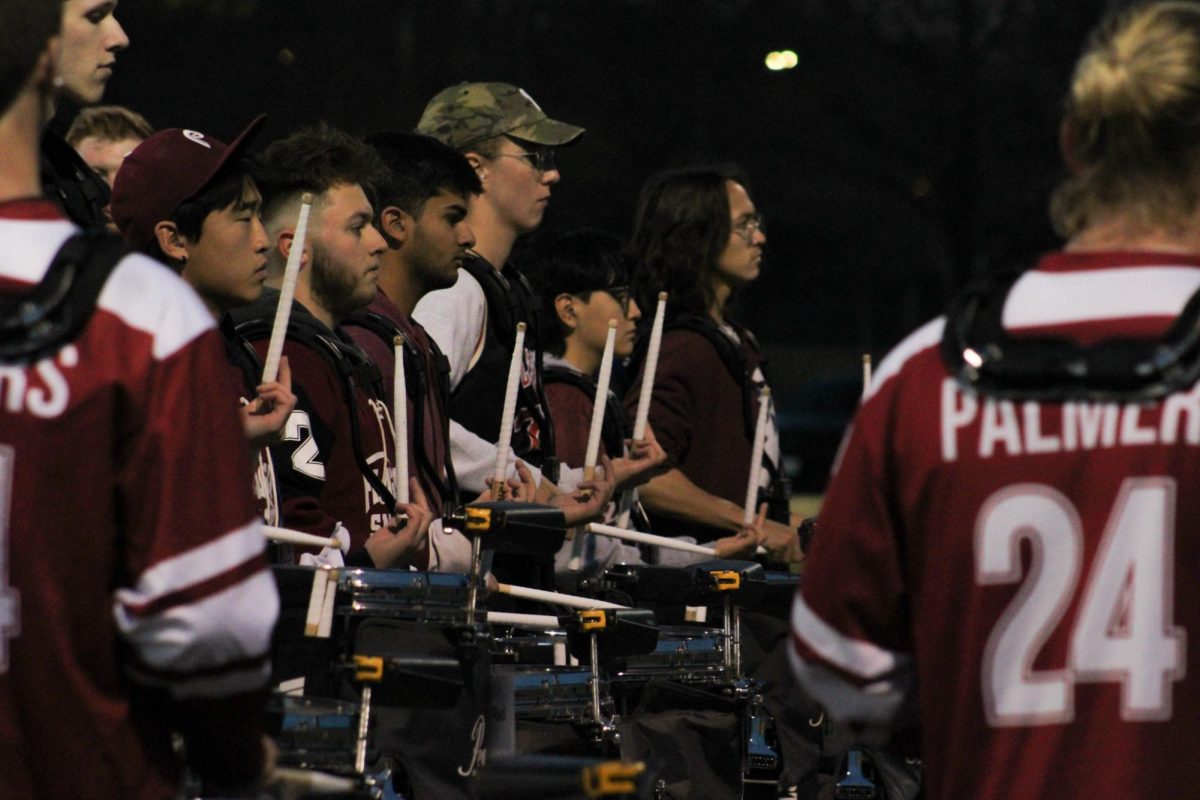Originally a songwriter for household names like Selena Gomez and Shawn Mendes, for the last few years Julia Michaels has gradually established herself as an artist on the rise. This past month, on Jan. 24, the singer-songwriter released her second EP, “Inner Monologue Part 1,” which contains six songs, two being collaborations with Gomez and Niall Horan.
“Inner Monologue” seemingly acts as a therapeutic release for Michaels, a place for her to finally get all of her complicated, messy thoughts off her chest. She is honest and vulnerable, successfully communicating complex emotions in well-written lyrics, further proving her skills as a seasoned songwriter.
The lead track on the EP, titled “Anxiety,” features Gomez and was met with much fan appreciation due to its relatable lyrics about social anxiety. Michaels portrays these complex emotions well, as she calls on specific situations where she has struggled with her anxiety, singing “I try my best just to be social / I make all these plans with friends and hope they call and cancel.”
Michaels juxtaposes her lyrics that speak of the endless jumble of her thoughts and the isolation she feels with calming guitar strums and upbeat percussion, bringing some light to the harsh topic. The song isn’t vocally versatile or strong, but sounds conversational, which in context appears appropriate, but leaves something to be desired.
“Into You” is one of the better tracks on this EP. A post breakup song, Michaels again is able to display such complexity in pop friendly lyrics. The song begins with Michaels not wanting to run into her ex-partner and attempting to avoid them at all costs, presumably because she feels uncomfortable or upset about the breakup. But when the chorus comes in, we learn that Michaels in fact hopes to have a run-in. Still, though, she desires to avoid them as she is trying to save herself from falling in love again.
She sings “I don’t wanna give you all this power/ I’m so defenseless when it comes to you.”
“Into You” begins with a melancholy piano, but gradually evolves, as the beat enters in the pre-chorus and the piano gets pushed into the background, but by the time the chorus hits the song has evolved into a catchy pop tune, like what you hear on a Top-40 radio station, with a beat that makes you want to dance in your bedroom or in your car, lending it mass market appeal.
“Happy” is the third track on the EP, and despite its name, its concept is the exact opposite of what it may seem. The track follows Michaels’ own bitterness at how she cannot feel anything real or any happiness. In it she analyzes her own actions: “Sometimes I think I kill relationships for art.” This lyric contains the most impact, as Michaels is wholeheartedly real and raw in this track. Her recognition of how, although she can write songs capitalizing on her own hurt emotions, she understands she ultimately pays the price with broken relationships. Michaels struggles to understand if her art is worth the heavy price. Michaels’ vocals are desperate and raw, as her conflict within seems to want to burst out of her throat; it’s hard to recognize her own self-destructive behavior in relationships. You can hear her pain and desperation; its that aspect that makes the song so well done.
The next two tracks, “Deep” and “Apple,” have drastically different vibes and musicalities, but they are not as strong as their predecessors. “Deep” follows Michaels’ hesitancy to enter a new relationship after a heartbreak. She initially tries to keep herself distant, but she falls deeper and deeper into the relationship. This track feels slightly different musically, especially as the chorus hits, as deep percussion is combined with an interesting chord progression. Within this song it is clear that Michaels is experimenting with her sound. “Apple,” however, is a fantasy of the love story Michaels one day hopes to possess. The song is very minimalistic, with sounds of a ukulele carrying the light, simple tune for most of the song. Compared to the rest of the EP, the minimalism here as well as the lack of variety in Michaels’ vocals make the whole song blend together to sound complex.
The closing track, “What a Time,” features Niall Horan and is arguably one of the best songs on the EP, up there with “Into You.” The song reminisces on the happiest memories of a past relationship. Musically, it is simple, much like “Apple,” with the guitar carrying the song, but the guitar playing possesses more style and flair than the ukulele did, which elevates the track into new territory. While “Apple” felt forgettable, “What a Time” has the feel of a pop hit. Vocally, Michaels’ and Horans’ voices blend together beautifully, their voices, warm and smooth, help deliver that reminiscent, nostalgic feeling right into the listener’s ears. The track gradually builds up to a peak point, which Michaels has lacked in some of her other tracks. Here, though, as the music crescendos, and Michaels’ light, airy voice envelopes audiences, the song delivers and leaves them wanting to click replay.
“Inner Monologue Part 1” is a glimpse into an up and coming artist’s growth, as she tries to develop her style and sound. Michaels’ being a songwriter first, and vocalist second, has expectedly leaned on her lyrics to carry her songs; however, they in turn lack vocal versatility and range. Her voice is light and breathy, which works for certain tracks, but at times falls flat. Her minimalistic music is also quite hit-or-miss, sometimes it comes off as weak or boring, but when she gets it right, like in “What a Time,” the song soars. For her second EP, Michaels has produced some forgettable tracks, but she has also produced some potential hits. Keep on the lookout for Michaels and her emergence into the popular scene.
Ashley Tsang can be reached at [email protected].




















